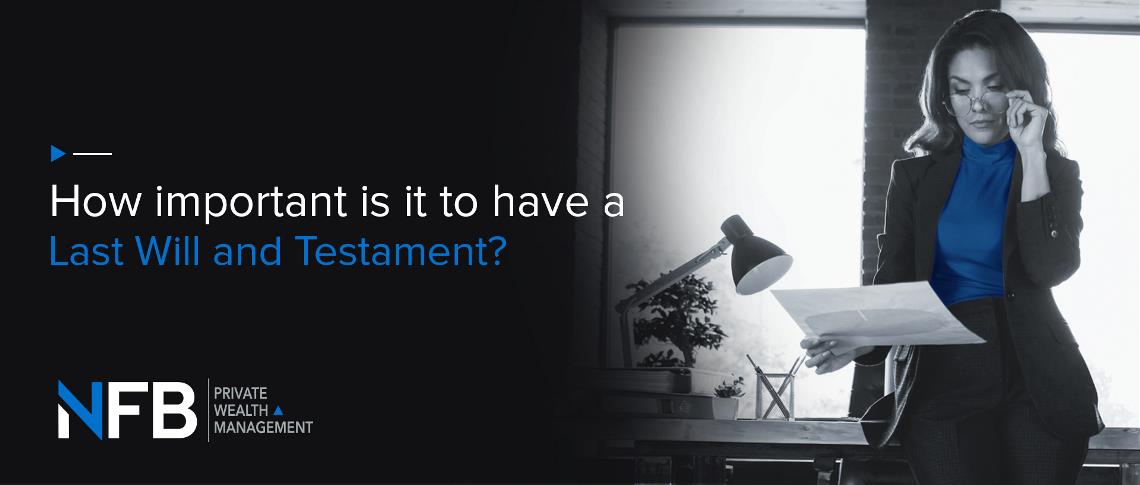The importance of having a Last Will and Testament in place
You know what they say - there are only two things you can be sure of, in this world:


You know what they say - there are only two things you can be sure of, in this world: death & taxes. Luckily, in the event of your death, you’ll no longer have to worry about taxes - but it’s a good idea to prepare you and your loved ones, and your assets for your death, however far away it may be. This means that you’ll need to create and sign a Last Will and Testament, or simply, a Will. This legally binding document states what happens to your assets after you die; that is, how they’ll be distributed among beneficiaries and heirs.
What does having a Will mean?
-
Nomination of heirs and beneficiaries
You’ll select the people or organisations that your assets or wealth will be distributed to, however you see fit. These assets can include your house, cars, businesses or even special distributions to charities. This assists in ensuring a smooth, legal process to prevent conflict between family members in the wake of your passing.
-
Organ donations
If you’re a registered organ donor and want to donate all organs after your death, stipulating this in your Will affirms your wishes in this regard.
-
Choice of Burial
How you’d like to be buried is entirely your choice. Some people opt for burial, including traditional burials, while others prefer to be cremated. Whichever makes you most comfortable, adding this into your Will gives direction to your final instructions (Provided your loved ones are aware of this preference)
-
Your child’s guardian
The biggest worry for parents who have young children is their custodianship. After selecting the person to whom you’ll entrust your kids’ care and gaining their consent, stipulating this in your Will is crucial - you don’t want the State to decide who’ll look after your kids in the event of your death.
-
Establishing a trust for minor kids
A Will gives you an opportunity to establish a trust for your children. In the absence of such provision or the nomination of a guardian on behalf of the minor child, any cash assets will be paid into the Guardian’s Fund. It’s a good idea to nominate a financially stable, trustworthy trustee, who’ll make good financial decisions while managing those funds, putting the needs of your children first.
-
Nomination of Executors
Your Will also gives you the opportunity to nominate your own executor - that is, the person who, subject to the Masters approval carries your Will out as per your instructions. While opting to nominate a family member to take on this role may be tempting, it might not be the best idea; an objective 3rd party who has the time, capability and understanding to wind up your estate in the event of your death is possibly a safer solution. We’d recommend nominating an executor with experience in fiduciary planning, and winding up a deceased estate.
-
Negotiation of Executor Fees
While you are still alive, you are able to negotiate the rate of executor fees to be charged to your estate and your Will ensures that the executor will be held accountable to the price they agreed to (should he accept the nomination).
Formally validating your Will requires your signature, as well as being witnessed by two independent and competent witnesses, and it’s recommended that you seek out a professional with fiduciary experience to draft your Will.
Not having a Will in place means you run the risk of leaving your family in conflict, and your assets and wealth up in the air. Family members often tend to believe that they deserve a larger portion of your estate, and a Will prevents this from happening. It also stops the law of intestate succession being applied to your estate. This is a set formula that lays out the distribution of your estate amongst your surviving family, but does not treat each family member with the same generosity you feel they might deserve.
There’s an incorrect perception about the Last Will and Testament, in that people seem to believe they only really apply to rich elites with large bank balances and investment portfolios. The reality is that everyone should have a Will - winding up a deceased estate smoothly and conflict-free, protecting your loved ones and children’s future is something that everyone should consider.













